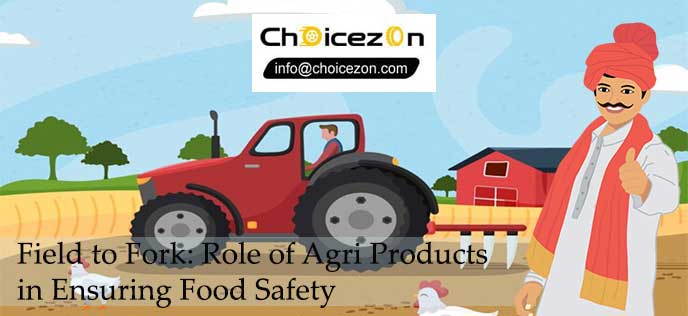Food safety is a paramount concern for individuals and communities alike. As consumers, we rely on the agricultural industry to provide us with safe and nutritious food. But have you ever wondered about the journey our food takes from the field to our forks? In this blog post, we will delve into the crucial role of agricultural products in ensuring food safety.
The Beginning: Cultivating Safe Crops
It all starts in the fields, where farmers work tirelessly to cultivate crops that meet strict safety standards. From selecting the right seeds to implementing sustainable farming practices, farmers play a vital role in ensuring the safety of our food. By adhering to regulations and best practices, they minimize the risk of contamination and ensure that the crops are free from harmful substances.
Harvesting and Handling: Maintaining Quality and Safety
Once the crops are ready for harvest, it is essential to handle them with care to preserve their quality and safety. Proper harvesting techniques, such as using clean tools and containers, prevent contamination during the collection process. Additionally, maintaining optimal storage conditions, such as temperature and humidity control, helps to prevent the growth of harmful bacteria and preserve the nutritional value of the produce.
Transportation: Safeguarding the Journey
Transportation plays a crucial role in the safe delivery of agricultural products from farms to processing facilities, markets, and ultimately to our homes. Ensuring that vehicles and containers are clean and properly sanitized minimizes the risk of cross-contamination. Temperature-controlled transportation also helps to preserve the freshness and safety of perishable goods, reducing the likelihood of spoilage or the growth of pathogens.
Processing: Transforming Raw Materials into Safe Food
Processing facilities play a vital role in transforming raw agricultural products into the food products we find on our grocery store shelves. These facilities follow strict guidelines and regulations to ensure food safety. From cleaning and sorting to cooking and packaging, each step is carefully monitored to minimize the risk of contamination. Stringent quality control measures are implemented to identify and remove any potentially unsafe products before they reach consumers.
Retail: Ensuring Safe Choices for Consumers
At the retail level, food safety remains a top priority. Grocery stores and markets have a responsibility to provide consumers with safe and wholesome products. Regular inspections, proper storage practices, and clear labeling are just a few of the measures in place to ensure that the food we purchase is safe for consumption. By working closely with suppliers and adhering to food safety guidelines, retailers contribute to the overall safety of the food supply chain.
The Role of Consumers: Making Informed Choices
As consumers, we also play a crucial role in ensuring food safety. By making informed choices and practicing safe food handling and preparation techniques, we can protect ourselves and our families from foodborne illnesses. It is important to read labels, store food properly, cook it thoroughly, and practice good hygiene while handling food. By being mindful of these practices, we contribute to the overall safety of the food we consume.
In conclusion, the journey of agricultural products from the field to our forks involves multiple stakeholders and stringent safety measures. From farmers and processors to retailers and consumers, each step of the supply chain plays a vital role in ensuring food safety. By understanding and appreciating the efforts put into cultivating, handling, processing, and delivering safe agricultural products, we can make informed choices and enjoy our meals with peace of mind.
